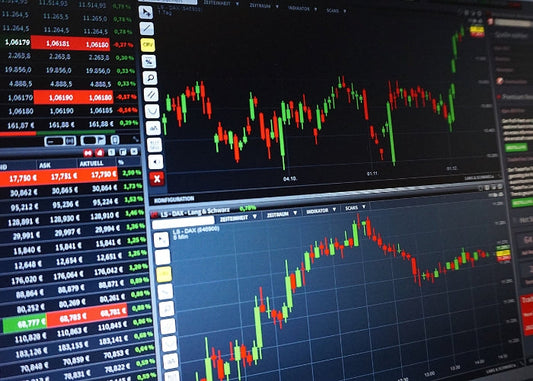FX Daily: Trive Bearish on EUR/JPY

It is too early to say that the EUR has reached a turning point. A peace deal for Ukraine remains uncertain, while the Eurozone's outlook is still unclear, and the ECB may maintain its dovish stance. Meanwhile, Japan's economy continues to show strength, further reinforcing the BoJ’s rate hike trajectory—unless potential U.S. tariffs pose a negative surprise.
EUR: It is too early to celebrate
Over the past week, the EUR has rebounded, driven by several factors. First, optimism about a potential end to the war in Ukraine has outweighed concerns about the Eurozone’s weak economic outlook and the ECB’s dovish stance. Second, markets no longer view the threat of US tariffs as imminent, as the implementation of reciprocal tariffs has been delayed by several months, allowing trading partners time to adjust their strategies. However, risks surrounding tariffs remain significant. Former President Trump’s directive to base “reciprocity” not only on tariffs but also on non-tariff factors—such as VAT rates, exchange rates, and regulatory barriers—adds layers of complexity. This is particularly relevant given Trump’s previous statements that tariffs on the European Union will “definitely happen,” keeping the threat of trade tensions alive.
While a potential resolution to the conflict in Ukraine could usher in a period of relative economic calm, lower energy prices, and a reconstruction boom that might support the Eurozone’s economic outlook, markets remain cautious. The single currency continues to face headwinds from the risk of a Eurozone recession, political uncertainty, and the looming threat of a trade war with the US. Additionally, the ECB’s easing cycle could further position the EUR as an attractive funding currency, limiting its upside potential in the medium term.
Looking ahead, market attention will focus on geopolitical developments, Eurozone PMI data, the German ZEW economic sentiment index, and the outcome of the German vote on 23 February for signs of economic stabilization. Despite the recent rebound, the EUR’s strength may be short-lived unless there is tangible progress on geopolitical or economic fronts, with trade tensions and ECB policy acting as persistent headwinds in the near term. That said, the EUR could continue to enjoy strength within this ‘peace dividend’ until the final outcome of geopolitical and trade developments becomes clear.
JPY: Fundamentally strong
Over the past week, the Japanese yen (JPY) has weakened primarily due to external factors rather than domestic issues. A significant contributor to this weakness is the reciprocal tariffs proposed by President Trump, which are expected to negatively impact Japan’s economy. Trump has already signed the order for these tariffs, with a potential implementation date of April 1. However, the exact details remain unclear, and market reactions suggest that the tariffs may either be tolerated by trading partners, negotiated away, or never fully implemented, given the mandatory six-week delay before enforcement. As long as the market does not perceive this as a serious threat, the JPY could regain strength based on its underlying fundamentals.
Currently, the yen remains under pressure due to the wide interest rate differential between Japan and the United States, with the Federal Reserve maintaining relatively high rates. However, if the Bank of Japan (BoJ) signals a stronger commitment to tightening monetary policy, market expectations could shift, potentially leading to a stronger yen. Last week’s release of the US January Producer Price Index (PPI) showed softer components that feed into core Personal Consumption Expenditures (PCE) inflation, suggesting a more benign PCE inflation reading compared to the hotter Consumer Price Index (CPI) numbers. This reinforces the Federal Reserve's current stance of being in no hurry to cut rates but leaning toward easing if the disinflation process in the US remains on track.
In contrast, the BoJ could raise rates in both September and December if wage growth continues to show resilience, inflationary pressures persist, and Japan’s labor market tightens further. Rising wages could support the case for monetary policy normalization. Recent data indicates a shift, as companies respond to labor shortages by increasing salaries. If this trend continues, the BoJ may adopt a more aggressive approach in adjusting its ultra-loose monetary policy. This highlights the potential policy divergence between the Fed and the BoJ, particularly in the second half of 2025, when the Fed is expected to begin cutting rates.
Looking ahead, market attention will shift to Japan’s Q4 2024 GDP and January National CPI data. Any further evidence that growth, consumption, and inflation are aligning with the BoJ’s objectives will reinforce the view that the central bank could raise rates sooner than expected, with the March meeting now seen as a potential turning point. Meanwhile, although the immediate threat of tariffs has subsided, the market will remain sensitive to any headlines from Trump, which could temporarily undermine the yen’s renewed strength.
Overall, the yen remains fundamentally supported. The combination of potential BoJ policy normalization, resilient wage growth, and a tightening labor market provides a solid foundation for the yen’s strength. However, external factors, such as US trade policies and Federal Reserve actions, will continue to play a critical role in shaping the yen’s trajectory in the near term.

Disclaimer
This material is provided for informational purposes only and does not constitute financial, investment, or other advice. The opinions expressed in this material are those of the author and do not necessarily reflect the views of Trive International. No opinion contained in this material constitutes a recommendation by Trive International or its author regarding any particular investment, transaction, or investment strategy. This material should not be relied upon in making any investment decision.
The information provided does not consider the individual investment objectives, financial situation, or needs of any specific investor. Investors should seek independent financial advice tailored to their individual circumstances before making any investment decisions. Trive International shall not be liable for any loss, damage, or injury arising directly or indirectly from the use of this information or from any action or decision taken as a result of using this material.
Trive International may or may not have a financial interest in the companies or securities mentioned. The value of investments may fluctuate, and investors may not get back the amount they originally invested. Past performance is not indicative of future results.
For more information about Trive International, please visit http://trive.com/int
Additional Information
Investing involves risk, including the potential loss of principal. Diversification and asset allocation strategies do not ensure a profit or guarantee against loss. The content in this material is subject to change without notice and may become outdated or inaccurate over time. Trive International does not undertake any obligation to update the information in this material.
By accessing this material, you acknowledge and agree to the terms of this disclaimer. If you do not agree with these terms, please refrain from using this information.
कोई टिप्पणी नहीं
Home
Trive
TriveHub





0 टिप्पणियाँ